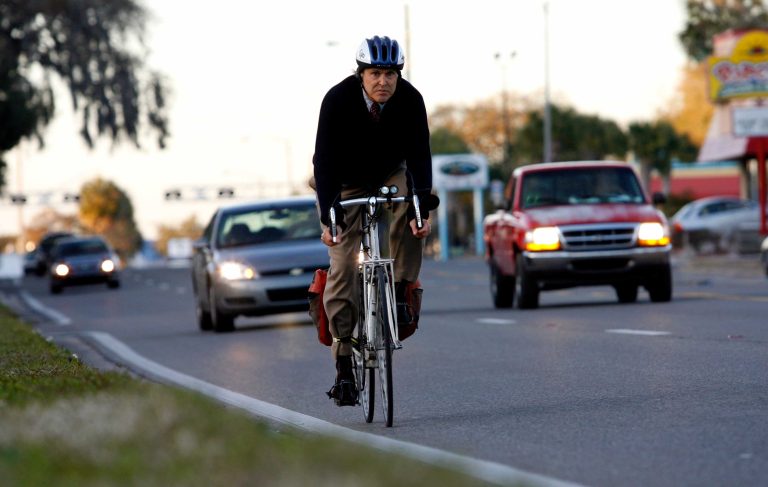A Natural Fit for Florida’s Climate and Lifestyle
Florida’s sunny weather, flat terrain, and sprawling cities have made biking a natural choice for many residents as a mode of transportation. Unlike colder states where winter months deter outdoor activities, Florida’s warm climate allows for year-round cycling, attracting not just recreational riders but also commuters and daily travelers. The appeal of hopping on a bike to run errands, get to work, or simply enjoy the outdoors is rooted deeply in the state’s culture, geography, and lifestyle.
Many Floridians embrace biking for its health benefits and environmental friendliness. In a state that faces significant traffic congestion, especially in urban centers like Miami, Tampa, and Orlando, bikes provide an efficient way to avoid gridlock and reduce carbon footprints. For younger residents, students, and even retirees, cycling offers a sense of freedom and mobility without the costs or hassles associated with owning and maintaining a car. Additionally, Florida’s growing network of bike lanes, trails, and greenways has made it easier and safer for people to choose two wheels over four.
The cost savings can’t be overlooked either. Gas prices fluctuate, parking in busy downtown areas can be expensive or hard to find, and vehicle maintenance adds up. Bikes offer an economical alternative that’s accessible to a wide range of incomes and lifestyles. In communities designed with walkability and bikeability in mind, residents find they can live fuller, more active lives without being dependent on cars.
Challenges of Biking in Florida
Despite the many benefits, cycling in Florida isn’t without its challenges. The rise in popularity of bikes also brings safety concerns. Florida consistently ranks among the states with the highest numbers of bicycle accidents and fatalities in the nation. Factors contributing to these dangers include high volumes of car traffic, distracted or reckless drivers, and sometimes inadequate infrastructure in rapidly growing urban areas. Drivers unfamiliar with sharing the road with cyclists, coupled with high-speed limits on many roads, create hazardous conditions for those on two wheels.
The heat and humidity can also be a deterrent for some. While many Floridians adapt by riding early in the morning or later in the evening, intense summer weather sometimes limits biking during the day. And despite improvements, not every neighborhood or city has dedicated bike lanes or safe routes, forcing cyclists to navigate busy streets alongside cars and trucks.
Because of these risks, accidents involving cyclists in Florida are unfortunately common, and the consequences can be severe. Bicyclists have far less physical protection than drivers or passengers in cars, so even relatively minor crashes can lead to serious injuries or fatalities. In these situations, having experienced legal representation can make a significant difference.
The Role of a Florida Bike Accident Lawyer
If you or a loved one is involved in a bicycle accident in Florida, understanding your rights and knowing where to turn for help is crucial. A Florida bike accident lawyer specializes in the unique challenges cyclists face when pursuing compensation for injuries caused by negligent drivers or unsafe conditions. These attorneys understand the nuances of traffic laws as they apply to cyclists and know how to investigate crashes thoroughly.
More importantly, a Florida bike accident lawyer can advocate for victims against insurance companies and other parties who may try to minimize payouts or shift blame. They can help secure compensation for medical bills, lost wages, pain and suffering, and other damages that arise from bike accidents. In a state where bike crashes occur with alarming frequency, having trusted legal guidance provides victims with both peace of mind and a stronger chance at justice.
Why Biking Will Keep Growing in Florida
Looking ahead, the trend toward biking in Florida is likely to continue growing. City planners and local governments are increasingly investing in bike-friendly infrastructure, including protected bike lanes, bike-share programs, and community education efforts about road safety. These initiatives are driven not only by public health goals but also by environmental concerns and a desire to reduce traffic congestion.
Cycling fits well into the broader movement toward sustainable and active transportation, which encourages residents to choose walking, biking, and public transit over driving whenever possible. For many, the bike is more than just a tool to get from point A to point B; it’s a way to connect with their community, improve personal fitness, and reduce stress.
Of course, with growth comes the responsibility to ensure safety. Continued advocacy for better laws, infrastructure improvements, and public awareness campaigns will be necessary to protect the rights and lives of cyclists. As more Floridians embrace the benefits of biking, drivers, lawmakers, and residents must work together to make roads safer for everyone.
Biking’s Place in Florida’s Future
In a state known for its vibrant lifestyle and natural beauty, biking has earned a permanent place in Florida’s transportation landscape. Its accessibility, affordability, and health benefits make it an attractive option for many residents navigating the unique challenges of the state’s geography and traffic patterns. While concerns around safety remain, the increasing attention to bike infrastructure and legal protections offers hope for a safer future on Florida’s roads.
For those who choose to ride, understanding the risks and having resources like a Florida bike accident lawyer available is an important part of being prepared. Cycling in Florida isn’t just a pastime—it’s a growing part of everyday life, shaping how people move, connect, and thrive across the Sunshine State.

